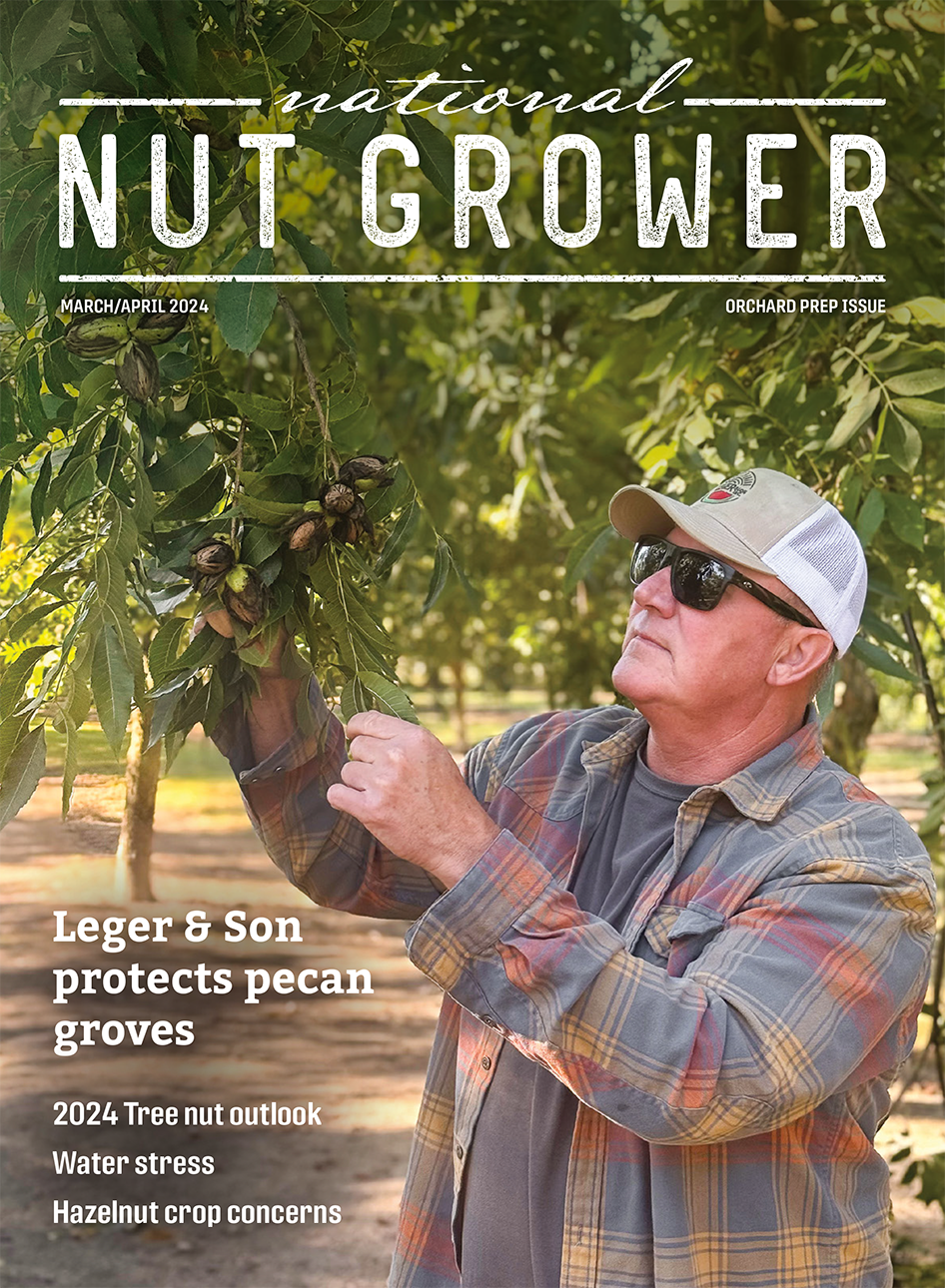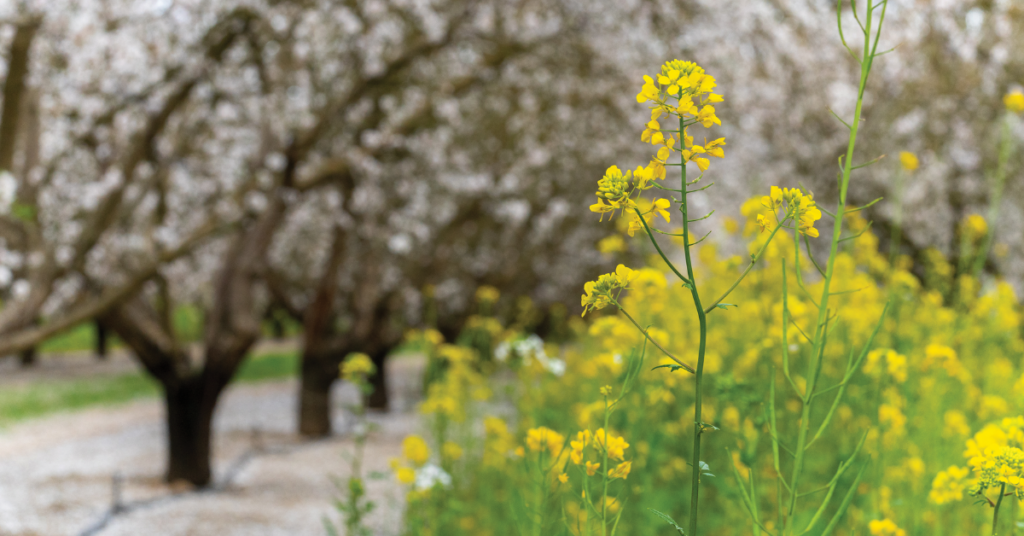
July/August 2023
Healthy orchards
Everyone understands the importance of honeybees as pollinators. For the past several years, the Seeds For Bees initiative has been helping growers integrate crops that strengthen the health of not only the bee, but the orchard as well.
Seeds for Bees is a program offered by Project Apis m., an organization with a mission to fund research and efforts to improve honeybee health and vitality. Project Apis m.’s name was derived from the scientific name for the honeybee, Apis mellifera.
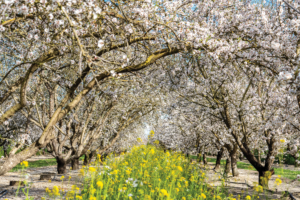
Seeds for Bees is a cover crop program to help increase bee foraging “where the cover crop mix is designed to include plants that offer nectar resources to honeybees,” said Josette Lewis, chief scientific officer for the Almond Board.
Seeds for Bees encourages cover crops in almond orchards to increase the density, diversity and duration of bee foraging while improving the soil health, according to the Project Apis m. 2021-2022 Seeds for Bees Impact Report. Additionally, the seed mixes available through Seeds for Bees are designed to bloom at critical times of the year, most notably during the winter when natural foraging sources are scarce and honeybees and other pollinators are active.
“Seeds for Bees serves the needs of beekeepers and growers while increasing land and climate stewardship and biodiversity,” the report stated.
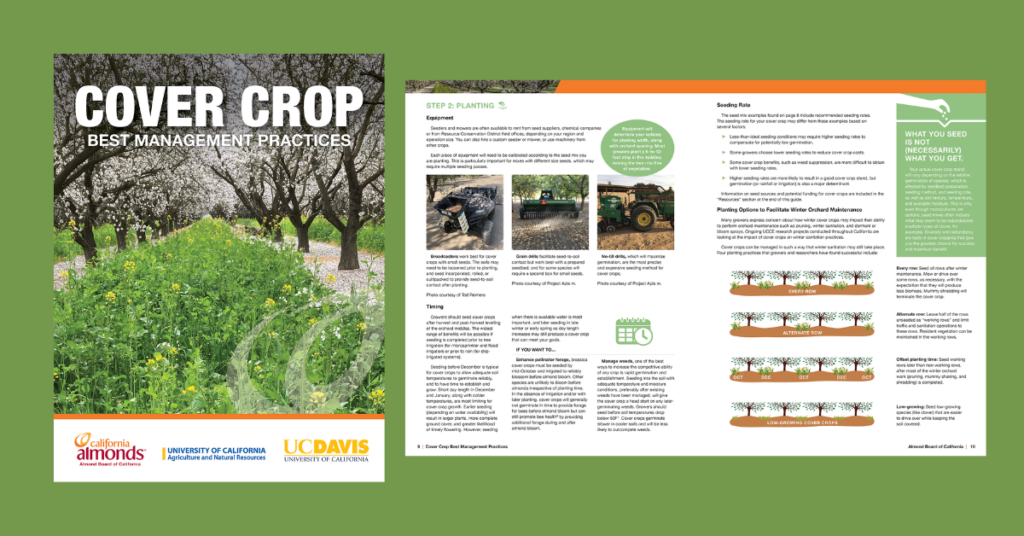
Research at the University of California, Davis (UC Davis) has shown a positive overall health benefit to honeybee hives when introducing floral resources. “Honeybee hives coming out of orchards with pollinator cover crops are healthier than hives coming out of a standard orchard,” Lewis said. “So, it’s a real win for the honeybees and for the beekeepers, above and beyond the good nutrition that the almond blossoms provide to those hives.”
In a recent meeting with Debbie Eisele, editorial director for National Nut Grower, Lewis shared that the Almond Board provides resources to increase knowledge of cover crops and funding for the Seeds to Bees program to reach growers.
It even produces a guide that helps growers know where to source seeds, how to plant and how to manage the cover crops. Lewis emphasized that there has been a three-fold increase in the number of farms that have planted cover crops in just the past few years.
“The cover crop guide has really helped expand grower awareness and grower adoption of pollinators with the use of cover crops. That’s not only a win for honeybees, but also for soil quality,” she said.
The Seeds for Bees program also offers some financial incentives as growers are eligible for a $2,000 discount off total seed purchases in the first year of enrollment. In the second year, enrollees are eligible for a $1,000 discount off the total seed purchase.
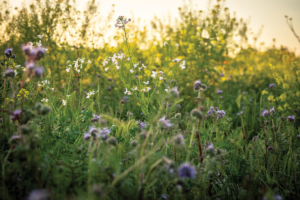
More than 160,000 acres of almonds have been registered as Bee Friendly Farms through Pollinator Partnership, Lewis said. Some almond processors even work with growers to make purchases to adopt and register as a Bee Friendly Farm as it possesses value in the marketplace. Additionally, some buyers have gone as far as to commit to specifically buy from Bee Friendly certified farms.
“We know from other research conducted by UC Davis that honeybees coming out of almond orchards are more numerous than going in,” Lewis said. The nectar sources in an almond orchard are abundant, and she shared that honeybees take advantage of the abundant food supplies and lay broods, which results in a larger population once the bees leave the orchard.
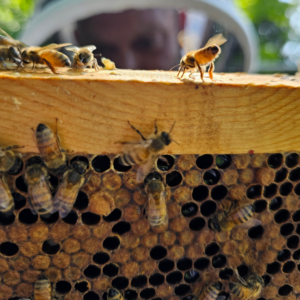
The early 2023 winter storms caused some challenges for almond growers in California. Lewis shared that the total crop size will be down this year due to the storms as honeybees don’t come out of hives below 50° F, they don’t like wind or rain. “(It was a) trifecta of bad weather that affected foraging hours and time spent pollinating the crops. Beekeepers had to supplement feed to hives during this time, where normally they have bountiful amounts,” Lewis said.
She also indicated the number of growers that have signed up for the program has exceeded expectations. This indicates almond growers are “attuned to the importance of honeybees and pollinators” and the essential role pollinators play in growing crops.
“It’s important to look at the almond orchard as a complete system, and keep in mind its health as a whole,” Lewis said. “I think there’s some increased recognition that the soil and living parts of the soil are really important to productivity of that orchard, and there are some co-benefits that come along with cover crops, not just helping those honeybees and other pollinators.”
Enrollment into Seeds for Bees*
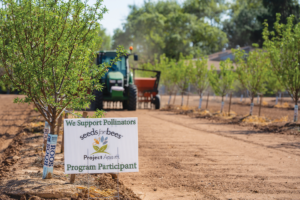
- First year: Enrollees are eligible for a $2,000 discount off total seed purchase
- Second year: Enrollees are eligible for $1,000 discount off total seed purchase
- Shipping: $0 for enrollees participating in Seeds for Bees
- Custom seed mixes are also available from Project Apis m. For more information, visit projectapism.org.
*Data sourced from Project Apis m.
For more pollinator resources, visit Almonds.com.







